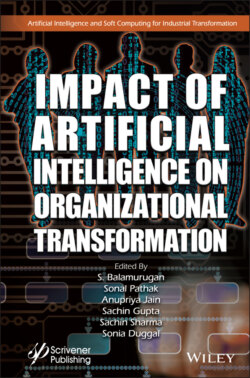Читать книгу Impact of Artificial Intelligence on Organizational Transformation - Группа авторов - Страница 103
4.5 Limitations of Artificial Intelligence in HRM
ОглавлениеEven though AI is beneficial in all the aspects of HRM, it still has some limitations like other advanced technologies and machines which are enumerated below.
Unable to accommodate differences: Application of AI in the recruitment and selection process is not free from blemishes. The robot fails to identify the finer nuances in applicants resume; hence, the risk remains that some good quality candidates could be rejected at the initial level itself. The interview should be taken by human expert as they are capable of judging even the nonverbal responses of the applicants such as nervousness, confidence, sincerity honesty, and transparency of the personality. AI-based technology may not pick up these cues so efficiently.
Lack of understanding: AI-based systems are usually working on previous data to analyze them and draw some conclusion. AI is capable to provide data that exhibit a specific pattern after crunching big data. AI is not capable of handling the HR functions independently but it can support the decision-making of HR professionals by means of expert systems (also known as Executive Support system).
Lack of human-like sense: It is a well-known fact that AI is smart enough to do work efficiently. But it lacks emotional intelligence which is very important for interpersonal relations. It fails to empathize with “fellow colleague”. Further, AI lacks the qualities of creativity and innovation which human beings are endowed with.
System dependent: AI is software-based system which is susceptible to system errors. The failure of AI may lead to the failure of entire HR subsystem, causing rampant dissatisfaction among the employees, leading to the increase rate of attrition.
